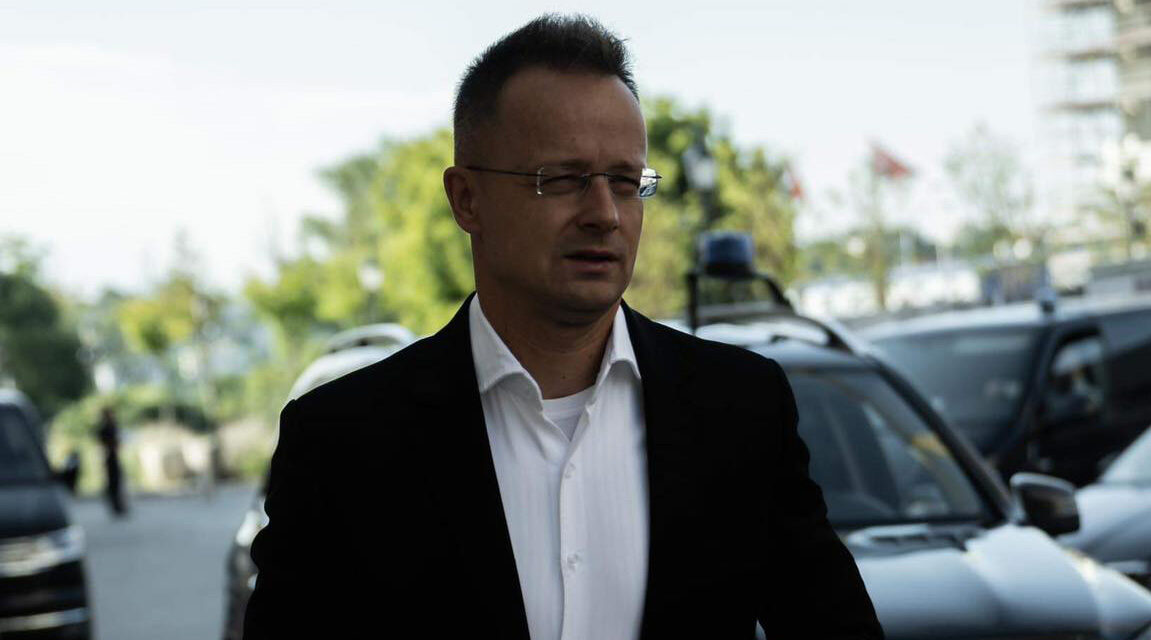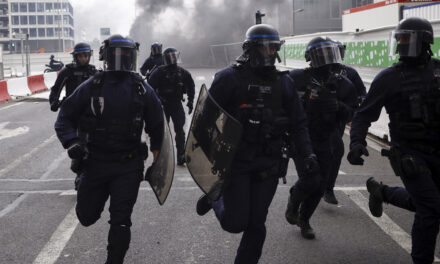Governments are usually replaced, but in our country the opposition is being replaced recently - said Minister of Foreign Affairs and Trade Péter Szijjártó in the Mandiner Reaksió podcast, where the foreign minister, who has been in his post for ten years, talks about the state of the right wing, the opportunities to appeal to young people, the debates in Brussels and, of course, the war and also expressed his opinion on the future of Europe.
The minister was first asked about the state of the Hungarian conservative side, since it is undeniable that some unpleasant events happened in the past year. In Péter Szijjártó's opinion, these were particularly painful stories because they gave the opposition an opportunity to question the sincere intentions of the government.
He believes that he managed to cope with the situation, which is also proven by the fact that Fidesz-KDNP has never received as many votes in the EU elections as it has now.
What makes today's political situation special is that, although governments are usually replaced by the disaffected, here we can experience the process of replacing the opposition. Of course, the government also needs to pay attention to this, since the challenges are now coming from a new direction, from a different side and in a different style.
Péter Szijjártó also spoke about the political activity of young people. According to him, it is much more difficult to appeal to young people today, because the new age groups can not only look for relationships by meeting in person, today they live their lives on Facebook and Instagram.
At the same time, his personal encounters do not indicate that they are hostile to conservative ideas. But it is a fact that addressing young people today is much more complicated, but it must be solved, because it will not be indifferent at the next election.
The minister was also asked how he feels in those situations when he is a guest on foreign television stations that are not exactly friendly.
– You have to find a way to make people even feel good in a situation like this. When you give an interview to such a large international media, you have to settle in your heart that I know a thousand times more about what we are going to talk about than the person who will aggressively, like in a bullfight, harm me. I've lived here for almost 40 years, I work here, it fills my days, for him it's one out of 10 interviews on a given day, the preparation time for the interview is, say, half an hour, he knows a little about it all, and I know a lot. The only question is whether you dare to show this in the given situation./ …./ The big breakthrough for me with my friend Richard Quest was when I told him that what you are saying is a lie, and then there was a big: what? Where did this boy come from? Does he tell the great Richard Quest live that he's lying? And there was a shock and it turned into shouting and pointing. It's a good thing that the table was long, because that way at least we stayed at this level. But I think that if a person can sort things out on their own, if they are brave enough to do so, then from then on, all they have to do is confront the aggressiveness with sufficient force - said Szijjártó.
Of course, the situation of our country in the European Union was also discussed, as well as the fact that apparently we negotiate with partners outside the EU in an almost friendly tone, while with the Western ones much more harshly. The Minister of Foreign Affairs justified this as follows:
- An Eastern colleague does not start the meeting by lecturing us, say, on the state of justice, media freedom, the rule of law, while Western colleagues always feel the urge to take out the textbook and, as a teacher to the student, start reading to me . The Finnish colleague, for example, started teaching about the situation of media freedom in Hungary, while the media was largely concentrated in Finland. Or when we are taught, say, about the independence of the prosecution and the judiciary, it turns out that in a given country the minister of justice also holds the position of chief prosecutor and can decide on the competence of the chief prosecutor himself. Or our electoral system is criticized, while there is a country in Europe where, if I remember correctly, a party with 14% has 70 representatives, and a party with 15% has 4. Or in France they announce the defeat of Mrs. Le Pen, while she won a million more votes than the second, only due to the peculiarities of the electoral system, it became less representative seats than those who obtained one million fewer votes. Or when a head of state in a neighboring country openly declares that if the party he doesn't like wins, he won't give him the mandate to form a government. Well then, don't take us for granted - concluded Szijjártó.
– If I didn't react to these insults and sat with our Western friends with a good smile, I would tolerate them talking about Hungary like that, then it is not certain that they would consider me a suitable representative of Hungarian interests.
So I think it's a basic thing that if it's from the East, if it's from the West, if it's from the North, if it's from the South, if we're insulted and criticized, then yes, we have to respond. I never sit down with any Western colleague and say, "I'm sorry, how is it that your neighborhoods are terrorized by migrants, how is it that the church has become a department store, how is it that you want to throw down the cross on the from teachers? I never sit down to negotiate like this. I do not consider myself authorized to start talking to others about internal or domestic political issues. They feel the urge to do this, but I will always respond to this - the foreign minister explained the situation.
Speaking about the EU negotiations and the evaluation of our country, Péter Szijjártó explained that some politicians are characterized by amazing hypocrisy. They praise us face-to-face and encourage us to be tough, veto, and fight, but they don't dare to openly support us, and at the meeting they read the pre-written texts condemning us in a monotone voice.
It was also mentioned that sometimes it would be more tactical to behave like, say, Austria, which does not argue, but does what it wants under the grass. Péter Szijjártó's answer:
– If one is a member of the G7, if one is one of the richest countries in Europe, one can afford not to do what one says and not say what one does. We can't do that. So far, I haven't sensed such a big loss from pursuing an honest policy, because anyone can say how many tens of billions of euros the European Union doesn't give, but it wouldn't give it even if we were hypocrites, because there is a completely clear, conceptual plan 14 years ago difference between Brussels and Hungary. We don't want migration, we don't want gender propaganda. Here, the family is the father, mother and children, the father is a man, the mother is a woman. We do not want war, we are not willing to submit to the international liberal mainstream, we are not willing to leave the country at the mercy of external forces.
At the same time, our honest and clear foreign policy has had many benefits and advantages so far.
It is a fact that Hungary is one of the 3 countries in the world where the three largest German car manufacturing companies are located, and we are the only country where five of the world's 10 largest battery manufacturers are located here, including the largest. It is a fact that we are achieving investment records year after year, employment is increasing, and there is hardly any unemployment. It is a fact that we were one of the countries where more people worked after the covid than before the covid and also that investments came to Hungary even during the covid. During covid, we were able to vaccinate faster than any European country. It was also because the gate was also open to the east. Let's remember that they announced with great fanfare how good it would be that the vaccines would come from the large joint European procurement and how to vaccinate, while tens of thousands of people died every day, the health care system was brought to its knees, President Von der Leyen in a text message however, his ordered vaccines did not arrive. If we hadn't been able to buy Szputnyik and Sinopharm then, there would have been tens of thousands more victims in Hungary.
"Or the energy issues." Right, they say that what is, is not. Everyone takes it for granted that the country's natural gas, oil and nuclear fuel supply is on a secure basis and has been continuously supplied even in the most difficult times, but it is not. There are countries where energy supply problems occur in difficult situations. This has never happened here, because we have a normal relationship with the world's leading actors in all directions - Szijjártó pointed out in the interview.
The full conversation can be viewed here:
György Tóth Jr
Cover image source: Facebook/Péter Szijjártó













